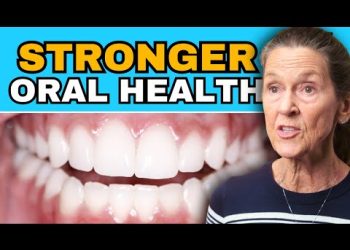Introduction to Nicotine Pouches
Nicotine pouches are a smokeless form of nicotine delivery gaining popularity as an alternative to smoking and vaping. These small, white pouches are placed between the gum and lip. While they offer a tobacco-free way to consume nicotine, their effects on oral health remain a topic of discussion.
The Mechanics of Nicotine Pouches
Unlike traditional tobacco products, nicotine pouches deliver nicotine through the mucous membranes of the mouth. Users typically feel the effects quickly, as nicotine is absorbed directly into the bloodstream without the need for combustion or inhalation. Understanding this delivery mechanism is important for assessing both its effectiveness and potential risks.
Oral Health Concerns
Dr. Staci Whitman explains that one primary concern regarding nicotine pouches is their potential impact on oral health. While they do not produce smoke and tar like cigarettes, they can still lead to gum health issues, mouth sores, and other oral complications due to nicotine’s vasoconstrictive properties, which can reduce blood flow to gum tissues.
Effects on the Gum Tissue
Regular use of nicotine pouches may lead to gingival recession, where the gums begin to pull away from the teeth. This can expose sensitive dental roots, increasing the risk of cavities and periodontal disease. It’s crucial for users to be aware of these potential effects and to maintain a rigorous oral hygiene routine.
Reduced Tar and Its Benefits
One benefit of nicotine pouches over traditional smoking is the absence of tar, a harmful byproduct of burning tobacco. While tar contributes significantly to oral diseases and discoloration of teeth, its absence in nicotine pouches may reduce some of these risks, although nicotine itself continues to pose a threat.
Nutritional Concerns
In addition to oral health, considerations around diet and nutrition can influence how nicotine is processed in the body. A balanced diet high in antioxidants can support overall oral and systemic health, potentially mitigating some negative effects of nicotine use.
Behavioral Considerations
Dr. Andrew Huberman highlights the psychological and habitual aspects of using nicotine pouches. Although less harmful than smoking, they can still foster addiction due to nicotine’s highly addictive nature. This highlights the importance of mindful consumption and exploring support options for those looking to quit.
Pouches vs. Other Nicotine Products
Compared to other nicotine products such as e-cigarettes and chewable tobacco, nicotine pouches may present fewer hazards. They do not expose users to harmful smoke inhalation or the carcinogens present in chewing tobacco; however, they still carry addiction risks.
Healthcare Advice
For individuals using or considering the use of nicotine pouches, consulting with healthcare professionals for personalized advice is highly recommended. Dental professionals can offer guidance on mitigating oral health risks, while general healthcare providers can support efforts to reduce nicotine dependence.
Conclusion
Navigating the use of nicotine pouches involves weighing the benefits of a smoke-free nicotine option against the potential risks to oral health and addiction. Staying informed and seeking professional guidance can help users make healthier choices regarding nicotine consumption.











